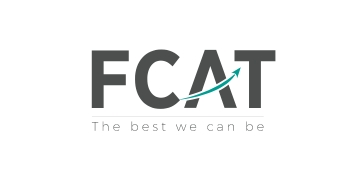A new training course is set to be launched to prepare FE lecturers for a massive expansion in students who will need to be taught English GCSE.
The Department for Education (DfE) has confirmed it is developing an English enhancement programme to help FE lecturers teach the subject at GCSE.
This is being developed with the Education and Training Foundation (ETF) and the Association of Centres for Excellence in College Education (ACETT) for teachers.
It is understood the programme could be launched as early as spring next year.
A spokesperson for ETF, said: “The DfE does have an English continued professional development course in development, but delivery models and arrangements are yet to be confirmed.
“The foundation [ETF] will work to make the programme as accessible and affordable for providers as possible.
“What this may look like will be determined as the programme develops.”
This comes after the ETF announced three weeks ago it will subsidise a new GCSE maths enhancement programme, which will limit the cost of the course to be launched in November to £100 per person.
The courses are needed because the government has announced learners aged 16 will no longer be able to drop maths or English, unless they have achieved at least grade C in their GCSEs.
This will mean thousands more teenagers having to be taught GCSE maths and English in FE.
An ACETT spokesperson said: “An English enhancement programme is currently being developed, with a view to launch it in the new year.
“We cannot go into details at present because it is only the early stages, but it will serve a similar purpose to the maths enhancement programme, in that it help prepare FE lecturers to teach GCSEs.”
John Westwell, from the National Centre for Excellence in the Teaching of Mathematics, which is developing the maths enhancement course, said it will focus on areas including algebra, trigonometry, geometry and statistics.
He added the course will specifically look at the most effective ways of preparing learners for resits.







This is good news for English skills amongst FE learners, as with the ETF’s recent announcements about increasing the supply of good Maths GCSE lecturers.
However, there’s a gap which seems as yet unaddressed by most of FE and its structures — possibly even an ‘un-admitted’, or at the very least unrecognised one, too.
That gap is in the personal levels of English and Maths skills amongst many teaching and training staff, who are then seriously hampered in the ability (or even willingness, in some cases?) to help their learners improve their performance in any course (and not just in specific GCSE courses). This hidden issue can afflict all sorts of staff, across the curriculum and throughout the layers of role, seniority and experience.
This is an increasing issue for providers, too. Ofsted is clearly raising its expectations of frequent, active and effective feedback, marking and guidance in the classroom and other settings, to help learners towards solid competence in these crucial fields (and yes: towards or during the dedicated GCSE courses, too).
Functional Skills provision and other ‘external’ learning support is all very well (when it’s sufficiently available and of good quality). But, like existing or increased GCSE-provision, it’s clearly no longer adequate in and of itself.
Teachers and trainers who have great subject expertise, and even excellent general teaching skills, may fall short of the need (and Ofsted’s accelerated expectations) in this important aspect. And many staff will have kept their problems of this kind very deeply hidden over many years, by a range of strategies. Those may no longer work, now, or be enough.
So, the sector needs more support aimed at this issue — offering practical approaches in an unthreatening way that deals first and foremost with the ‘mind-set’ issues involved. ‘Enhancement’ needs to be about more than just boosting the numbers of delivering full GCSE courses in English and Maths.
After all, if the lack of skills in basics such as arithmetical processes, spelling, punctuation and grammar can hamper staff effectiveness, and that is in some measure a matter of a restrictive mind-set about whether anything be done about it, or how — then what are the chances for learners working with such staff, and their progress in these regards?